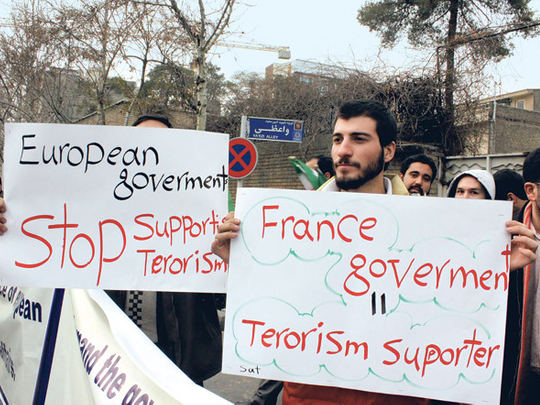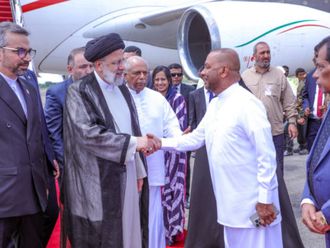
Tehran: Italy is stepping up calls for sanctions against Iran and expressing worry about anti-western protests in Tehran.
News reports quoted Italy's Foreign Minister Franco Frattini as saying the time for sanctions had arrived and that he believed the European Union is united on the issue.
Frattini spoke to reporters yesterday on the sidelines of a conference in Rome, a day after Iranians shouted "Death to Berlusconi!" outside the Italian embassy in Tehran.
Premier Silvio Berlusconi recently announced that Italy was scaling back its sizable economic dealings with Iran and called for tighter sanctions over Tehran's nuclear programme.
Iran believes a nuclear fuel exchange with the West is still possible, state television said yesterday, a day after the Islamic Republic's expansion of uranium enrichment drew a US warning of more sanctions soon.
"The deal is still on the table," Ali Akbar Salehi, head of Iran's Atomic Energy Organisation, said on English-language Press TV.
Simultaneous swap
But he appeared to reiterate Iran's demand for a simultaneous fuel swap on its soil — a likely non-starter for Western powers who want Tehran to send most of its low-enriched uranium abroad before it gets higher-grade material in return.
Salehi said Iran's uranium could be sealed and under the "custody" of the UN's International Atomic Energy Agency (IAEA) in the country, until it receives the fuel it needs for a medical research reactor.
US President Barack Obama said on Tuesday the international community was moving "fairly quickly" toward imposing broader sanctions on Iran, after Tehran said it had started making uranium enriched to 20 per cent.
Obama said Iran's refusal to accept a UN-brokered atomic fuel swap agreement suggested it was intent on trying to build nuclear weapons, despite its insistence its atomic activities were only for the peaceful generation of electricity.
Iran decided to step up enrichment after a failure to agree on terms for the exchange, under which it would have sent the bulk of its uranium abroad in return for 20 per-cent-pure fuel rods for a Tehran reactor producing medical isotopes.
Such an exchange would prevent Iran from retaining enough of the material for a nuclear weapon, if it were refined to 90 per cent. Iran has until now limited its enrichment to 3.5 per cent.
Not backing down
Salehi said Iran would halt production of 20 per cent fuel if it received it from abroad instead.
But he made clear Tehran was not backing down on its demand for a simultaneous exchange, a condition unlikely to be accepted by the major powers involved in efforts to find a diplomatic solution to the long-running dispute.
"The uranium can be under the custody of the agency [IAEA] in Iran and it could be sealed ... until the time we receive the 20 per cent enriched fuel from outside," Salehi said.
"If they come forward and supply the fuel, then we will stop this process of 20 per cent enrichment," he added.












